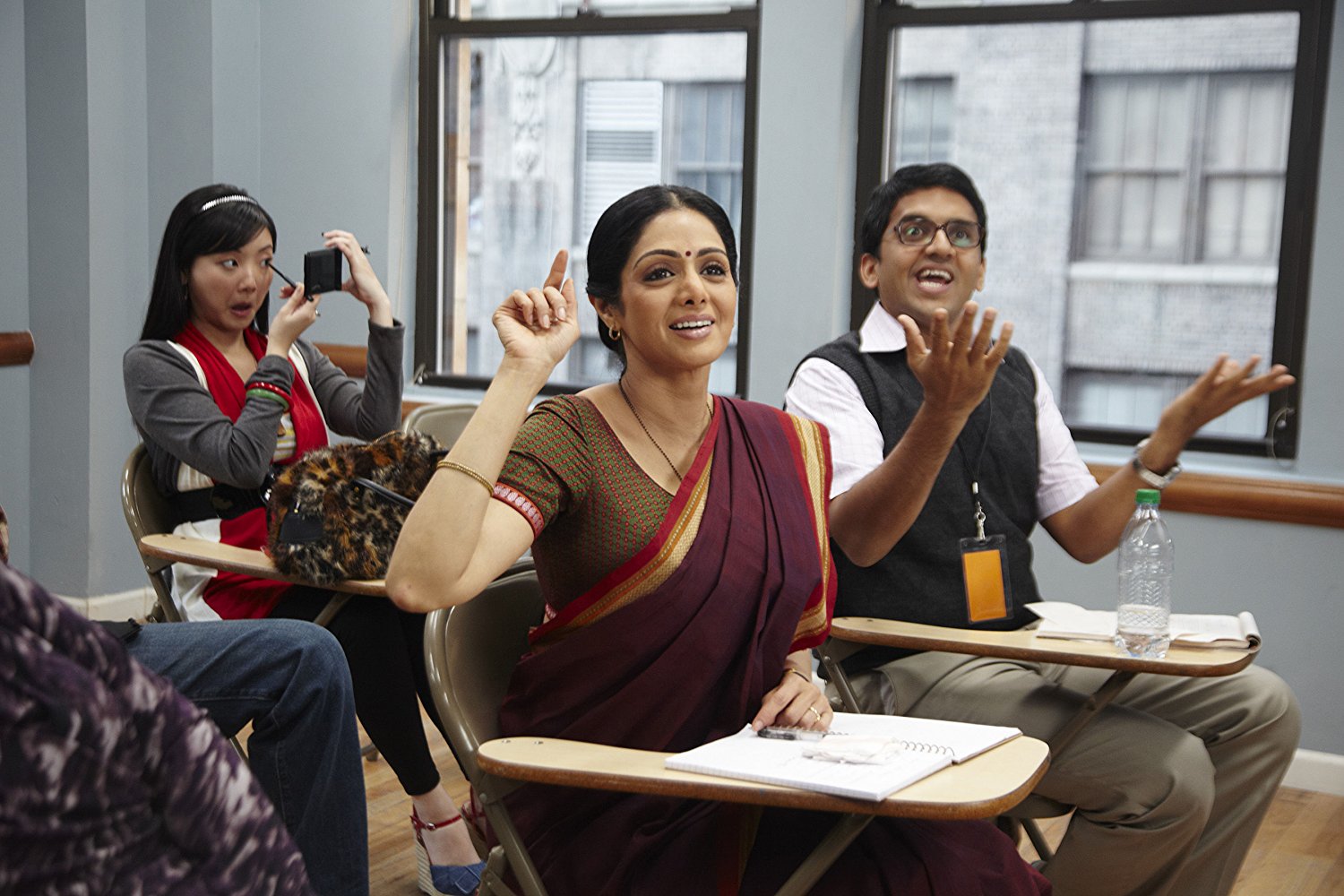Hero: Sridevi Kapoor, the legendary Indian actor who died unexpectedly last weekend.
What they did: An actor since the age of four, Sridevi joined the Indian film industry at a time when only male actors became superstars and could command top billing and wages. Acting in five different languages, across a broad range of genres, she was noted as an exceptional dancer with a heartbreakingly emotive face and impeccable comic timing. By the late 80s, Sridevi’s celebrated talents and beauty had won her a devoted fan base in India and beyond. Lauded as the “nation’s sweetheart” for her lead role in Yash Chopra’s 1989 Hindi romantic drama Chandni (Moonlight), the film established her as a star — the first woman actor to reach such fame and acclaim.
Tell me more: At the height of her fame in the 80s, Sridevi could choose her projects and name her price. Alongside Chandni, her roles included a shape-shifting snake-woman in Nagina (1986), an investigative journalist in Mr. IndiaI (1987), and as both mother and daughter in Lamhe (1991) — and she reportedly turned down a role in Steven Spielberg’s Jurassic Park.
Chandni is perhaps the most cited film from Sridevi’s 80s mega-fame, but as the author and journalist Deepanjana Pal notes in a piece for The Atlantic, her role in Chaalbaaz (Trickster) in the same year is the more radical one. “This is the film that gave us the beer-guzzling, thug-punching, rain-dancing Manju, one of Bollywood’s cutest, angriest, and most transgressive leading ladies,” Deepanjana writes. “As played by Sridevi, Manju is magnetic. The first time we meet her, she pummels a group of men because she hasn’t been given her due payment. Manju lives alone, loves to drink, makes her living as a dancer, and isn’t above sweetly conning those who underestimate her. In short, she is the paragon of vice by Bollywood standards.”
The London-based fashion designer Ashish Gupta posted about Sridevi on his Instagram following the news of her passing, and he spoke to i-D about her legacy and what she means to film lovers. “I grew up watching her films,” Ashish says. “She really redefined female lead roles in mainstream Bollywood in the 1980s, [playing] strong leads (at a time when women in mainstream Bollywood were mainly relegated to gratuitous song-and-dance routines, and token ‘love interest’ stereotypes). Sridevi’s devoted fan following almost guaranteed her a smash hit, no matter what type of role she played. Like the biggest stars, she went by just her first name — and over a career spanning five decades, she acted in 300 films, in 5 languages.”
“I remember skipping classes to go watch her movies, and I remember being obsessed with her looks in films like Chandni and Jaanbaaz — she made simple block-colored chiffon saris look so, so glamorous and, of course, those looks really made her a national fashion icon,” Ashish says, adding, “Also, it has to be said that no one else could have played a half-woman half-snake like she did in Nagina with such pizzazz. She will be greatly missed, but I am grateful that her legacy will live on.”
Why it matters: The devotion that Sridevi inspired in film fans — and the money she made for the production companies — brought a new respect to women actors in India, paving the way for the most bankable stars of today, such as Deepika Padukone and Priyanka Chopra. There is still progress to be made, as these women are still paid much less than their male counterparts, but Sridevi has likely had a positive impact on their future careers too. In 2012, after a hiatus from the screen, Sridevi made her comeback in English Vinglish with director Gauri Shinde; it was a hit and blazed a trail for older women in leading roles.
What effect is it having: Though Sridevi’s untimely death (at 54) has been described as “accidental drowning” (in the bath), it has sparked a debate about the pressures faced by actors in the Indian film industry. As the BBC report, fellow Bollywood actress Simi Garewal speculated on Twitter that there are, “uncanny similarities in the death of #Sridevi and Whitney Houston” — Houston died in 2012, when she accidentally drowned in the bath due to cocaine use and heart disease, an autopsy concluded.
Though no evidence has been reported that the two unfortunate situations were alike, it has opened up a wider conversation about the pressures of the industry — especially gendered oppression — and the mental health of actors generally. The BBC report that “at least 16 actresses and nine actors have taken their own lives in India,” according to a 2014 list by Al Jazeera. The article notes the pressure for women actors to be perfect in all areas of their life, and to retain a youthful beauty — despite aging and various vices not affecting mens’ careers. Deepika Padukone has bravely spoken out about her experience of depression, but it is still a taboo topic. Sridevi’s life, which friend and director Ram Gopal Varma has said was not as happy as she made it look, and the circumstances of her death have opened the conversation up further, and will hopefully help progress to be made for actors in the industry.
